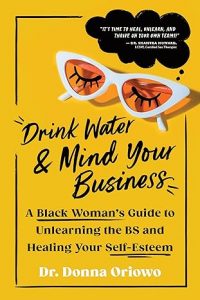Book Bans and Bestsellers: The Complex Relationship Between Censorship and Book Sales
3 min read
In recent years, book banning has re-emerged as a flashpoint in schools, libraries, and communities across the United States. Headlines announce titles pulled from classrooms. Parents, school boards, and lawmakers argue about what children should be allowed to read. Yet beneath the outrage lies an ironic truth: banned books often sell better than ever.
What does it mean when attempts to silence stories only make them louder? And how should we understand the strange relationship between censorship and commercial success?
A Long History of Banned Books
Censorship is nothing new. From The Catcher in the Rye to To Kill a Mockingbird, many classics now considered essential were once barred from classrooms or libraries. The American Library Association (ALA) has tracked these challenges for decades, noting that many of the most frequently banned books ultimately became staples of literary culture.
The pattern is clear: controversy sparks curiosity, and curiosity fuels sales.
When Censorship Backfires
Book bans rarely erase a story. Instead, they ignite discussion and drive attention. A parent protests a title, the news amplifies it, social media spreads it, and suddenly a book that might have quietly existed on a shelf becomes a national talking point.
For publishers, this can mean a sales surge. For authors, it can be both frustrating and validating: their voices are being challenged, but also heard louder than before.
Recent Examples: From The Hate U Give to Maus
In 2017, Angie Thomas’s The Hate U Give was published to critical acclaim and quickly faced challenges for its language and themes. Attempts to ban it only cemented its cultural importance. Sales skyrocketed, and the book became a bestseller, later adapted into a major motion picture.
Art Spiegelman’s Maus, the Pulitzer Prize–winning graphic novel about the Holocaust, was banned by a Tennessee school board in 2022. The backlash was immediate: Maus climbed to the top of Amazon’s bestseller list within days.
These cases reveal the paradox: censorship may limit access in one setting but broaden it globally.
The Role of Social Media
What once might have been a quiet local controversy now becomes a national movement overnight. Social platforms amplify outrage, and hashtags like #BannedBooks trend within hours. Readers organize virtual book clubs, libraries host banned book displays, and communities rally around the very titles meant to disappear.
In many ways, digital culture ensures that banning a book is one of the quickest ways to guarantee its survival.
Authors Speak Out
For writers, being banned is bittersweet. Sharon G. Flake, our current Intellectual Ink cover star, knows this reality firsthand. Her groundbreaking novel The Skin I’m In has been both celebrated and challenged. Authors often describe bans as painful because no one wants their work kept from young readers, but also proof that their stories matter enough to provoke reaction.
The Publishing Industry’s Calculations
Behind the scenes, publishers often brace for the “banned book bump.” Controversy can lead to higher print runs, re-releases with “banned” stickers, or targeted marketing campaigns. While they rarely seek bans outright, some industry insiders admit that censorship drives publicity dollars they could never buy.
Beyond Sales: The Human Cost
It is easy to focus on the bestseller lists and overlook the deeper cost of censorship. For young readers, book bans mean lost access to mirrors and windows, stories that could have affirmed their identity or expanded their understanding of others. When books are pulled from shelves, it is often marginalized voices that disappear first.
The spike in sales does not erase the harm of limited access. Communities suffer when diversity of thought and experience is shut out.
Silenced or Spotlighted?
Book bans attempt to silence. Instead, they often spotlight. Controversy fuels curiosity, and curiosity fuels sales. Yet success on bestseller lists does not erase the damage of censorship in schools and libraries.
The complex reality is this: banning books may strengthen their cultural impact, but it also restricts the very audiences who need them most.
Join the conversation: Do you think banning a book ultimately harms or helps its legacy?







